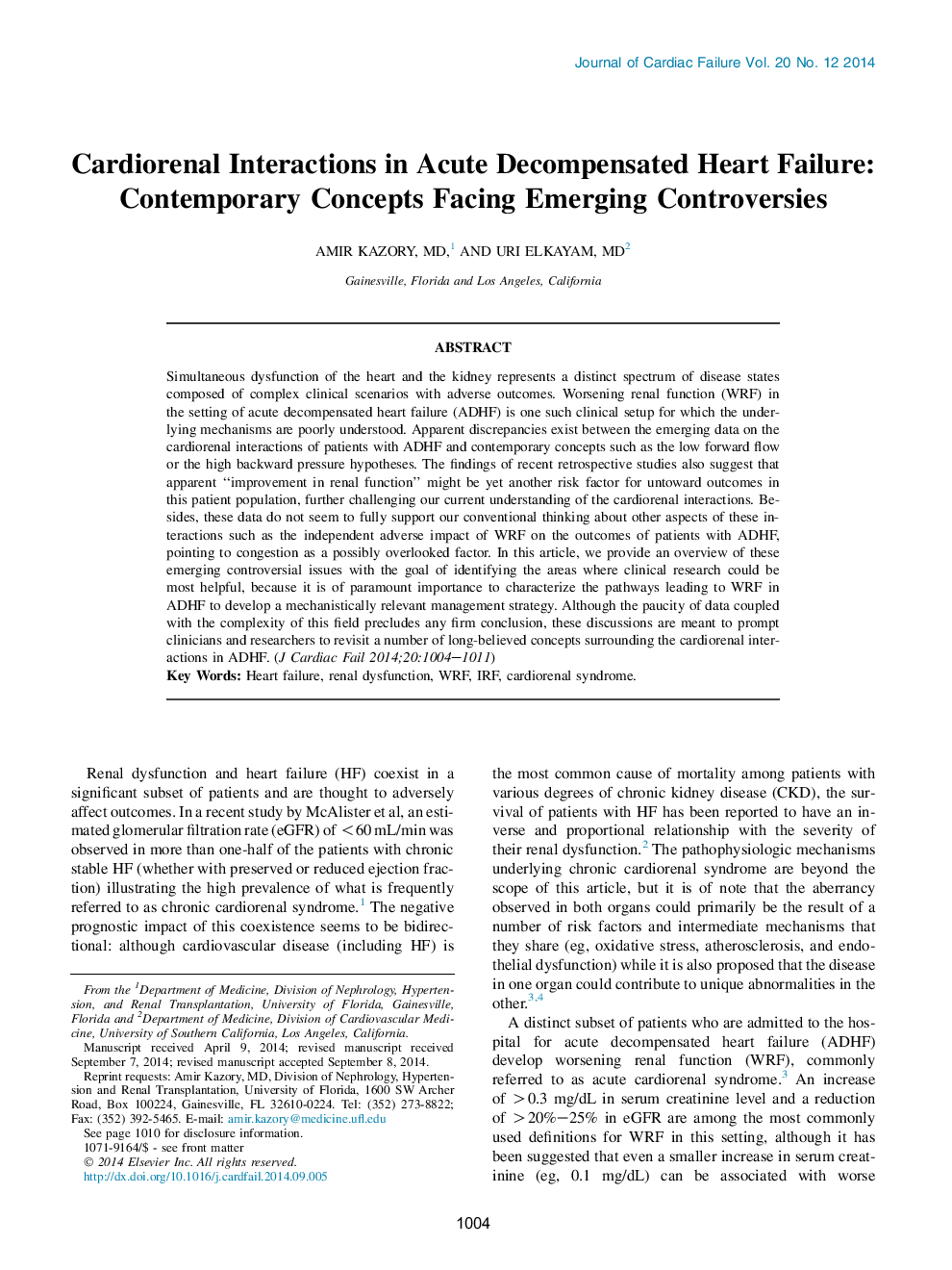| Article ID | Journal | Published Year | Pages | File Type |
|---|---|---|---|---|
| 5983720 | Journal of Cardiac Failure | 2014 | 8 Pages |
⢓Low forward flow” and “high backward pressure” are considered two major mechanisms of worsening renal function in patients with acute decompensated heart failure.â¢Retrospective studies suggest that “improvement in renal function” in patients treated for acute decompensated heart failure could be associated with adverse clinical outcomes.â¢In patients with acute decompensated heart failure, the impact of worsening renal function on outcomes could be modified by the presence or absence of congestion; the highest mortality rate is seen in patients who present with both WRF and persistent congestion.
Simultaneous dysfunction of the heart and the kidney represents a distinct spectrum of disease states composed of complex clinical scenarios with adverse outcomes. Worsening renal function (WRF) in the setting of acute decompensated heart failure (ADHF) is one such clinical setup for which the underlying mechanisms are poorly understood. Apparent discrepancies exist between the emerging data on the cardiorenal interactions of patients with ADHF and contemporary concepts such as the low forward flow or the high backward pressure hypotheses. The findings of recent retrospective studies also suggest that apparent “improvement in renal function” might be yet another risk factor for untoward outcomes in this patient population, further challenging our current understanding of the cardiorenal interactions. Besides, these data do not seem to fully support our conventional thinking about other aspects of these interactions such as the independent adverse impact of WRF on the outcomes of patients with ADHF, pointing to congestion as a possibly overlooked factor. In this article, we provide an overview of these emerging controversial issues with the goal of identifying the areas where clinical research could be most helpful, because it is of paramount importance to characterize the pathways leading to WRF in ADHF to develop a mechanistically relevant management strategy. Although the paucity of data coupled with the complexity of this field precludes any firm conclusion, these discussions are meant to prompt clinicians and researchers to revisit a number of long-believed concepts surrounding the cardiorenal interactions in ADHF.
